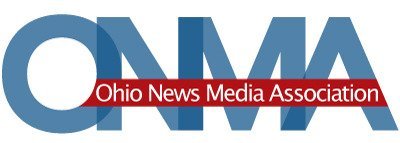Complete Story
03/03/2017
Sunshine Week 2017: Do more than absorb the rays
By Dennis Hetzel, Executive Director
We’re doing something special for Sunshine Week this year and offering a free webinar, sponsored by the Ohio Coalition for Open Government. The webinar will last less than 90 minutes and we urge not only Ohio journalists but also citizens from your areas to take part.
Meanwhile, there are a number of new proposals in the Ohio Legislature that would limit access to public records. (See below for more detail.)
What makes our March 16 webinar on Ohio’s sunshine laws particularly special is that we are doing it in concert with the ACLU of Ohio – the only organization that pays as much attention to these issues as we do.
I say “special” because it has never been more important for journalists and everyday citizens to connect, for reasons I hardly need to explain to this audience. Just as we are inviting our members, the ACLU is reaching out to its constituents. Consider this a “digital town hall” of sorts on open government.
Gary Daniels of the ACLU and I will run the webinar, and it will be interesting to see the types of questions we get from both groups. We’ll cover the basics of open meetings, open records and how to handle denials, including an overview of the new, low-cost, faster process at the Ohio Court of Claims for open records.
We’ll go from 10 a.m. until no later than 11:30 a.m. on March 16. Although it’s free, pre-registration is required. Click here to register. You should share this with others who might be interested outside your organization.
Open records issues at the Statehouse
So, you thought the state budget was just about money. Ha! The budget bill actually is filled with policy changes that have little to do with dollars. We are particularly concerned about three items in House Bill 49:
‘Drug Overdose Fatality Review Committee:’ A response to Ohio’s opioid epidemic contains a provision that would shroud activities of this committee in secrecy. We will seek language that only exempts items that already are secret under existing law. This still fully protects private medical information and similar records, but leaves records such as autopsy reports and death certificates open, which they must be. For a fuller explanation of why this could block the kind of journalism that many have applauded – including in the executive branch – read Editor Alan Miller’s column from The Columbus Dispatch.
Investigations by the ombudsman for the Office of Long-Term Care: Language to appropriately protect information about patients and care providers would change to catch-all language that would block access to “any records” in such files. When we see the term “any records” in a proposal, it almost always means an agency is going too far down the secrecy road.
Lottery audit reports: The Ohio Lottery Commission is seeking a special exemption to block release of any internal audit findings until after recommendations have been submitted to the commission director and chairperson. It’s a bad precedent with the potential for mischief. We are seeking a meeting with lottery officials.
We also are focusing on two other pending bills involving open records.
House Bill 8, which I already have written about, would block access to the names of minors in school-bus accidents. The journalistic need to have access to this information seems compelling to us.
House Bill 64 is well-intentioned. It creates a path to expunge public records of people arrested in mistaken identity situations. However, we live in a country in which there is increasing pressure to arrest and detain citizens and non-citizens alike. I realize this sounds overly dramatic and is not the intent of the bill sponsors, but destroying records of wrongful arrests is something a fascist state would do. How can police agencies and prosecutors be scrutinized if the government destroys records of its screw-ups – whether accidental or intentional?
Now for some sort-of good news
A reporter recently interviewed me for a Sunshine Week article, and she asked me how Ohio’s laws could be improved.
I started by saying that, for all our complaining, Ohio actually has a good open records law in many respects. The presumption of openness is strong. The new public-records appeals process can clean up a lot of disputes and raise awareness of governmental bodies. The main problem is the never-ending growth of new exceptions. My other concern has been the Ohio Supreme Court following years of concerning decisions. However, several recent rulings have swung the pendulum back in favor of transparency. Whatever the reasons, it’s great to see.
Let me share three things I’d consider if Gov. Kasich appointed me Ohio’s King of Sunshine (an ironic idea in and of itself):
- We need a better definition of open meetings so that so-called “fact-finding” sessions in which elected bodied receive important information are open to the public, as is the case in many states.
- We need stronger laws with the backing of the courts to open more records and meetings of quasi-public and public-private agencies as government outsources more functions.
- We should have fewer and narrower exemptions in the open records law to truly support the law’s intent: Public records are presumptively open and any exceptions only occur when a compelling need for secrecy is demonstrated. Exceptions always should be written as narrowly as possible.
Here are other resources for Sunshine Week:
- The ACLU’s excellent, downloadable guide to Ohio’s sunshine laws
- The American Society of News Editors’ Sunshine Week resources
Happy Sunshine Week to all. And keep those legal hotline calls and emails coming. That’s one of the most important things we are here to do.




